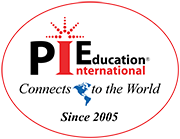The FIU Global First Year Program combines credit-bearing courses from the first year of a student’s degree with additional support services, instruction tailored to their academic and language level, and cultural experiences, helping to ensure their future success. Furthermore, the Global First Year experience provides more than just academic, language, and cultural growth. With the included Career Accelerator program, students can also gain valuable professional skills that prepare them for a successful career.
The Career Accelerator is specifically designed for international students and includes:
Four semesters of professional development and career guidance
Skills-based training and opportunities for exclusive internships
Unique workshops, real-world experiences, and cross-cultural group work
The School of Computing and Information Sciences at Florida International University, founded in 1987 and located in Miami, offers challenging undergraduate programs in Computing and Information Sciences and graduate programs in Computer Science. The programs are attended by excellent students locally, nationally, and internationally. The Computer Science (ABET/CSAB accredited) and Information Technology undergraduate programs provide students with an education consisting of both theoretical and applied knowledge necessary for a successful career as a computing professional.
There are two tracks available in the upper division program for a B.S. in Computer Science. The Computer Science (CS) track is recommended for students who intend to continue on to graduate study in computer science, while the Software Design and Development (SDD) track may be followed by students who intend to pursue a software engineering career.
Graduates of the BS program in Computer Science will attain, by the time of graduation:
An ability to apply knowledge of computing and mathematics appropriate to the program’s student outcomes and to the discipline
An ability to analyze a problem and identify and define the computing requirements appropriate to its solution
An ability to design, implement, and evaluate a computer-based system, process, component, or program to meet desired needs
An ability to function effectively on teams to accomplish a common goal
An understanding of professional, ethical, legal, security, and social issues and responsibilities
An ability to communicate effectively with a range of audiences
An ability to analyze the local and global impact of computing on individuals, organizations, and society
Recognition of the need for and an ability to engage in continuing professional development
An ability to use current techniques, skills, and tools necessary for computing practice
An ability to apply mathematical foundations, algorithmic principles, and computer science theory in the modeling and design of computer-based systems in a way that demonstrates comprehension of the tradeoffs involved in design choices
An ability to apply design and development principles in the construction of software systems of varying complexity.


